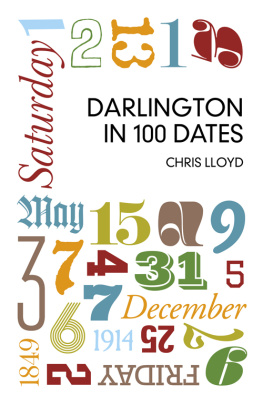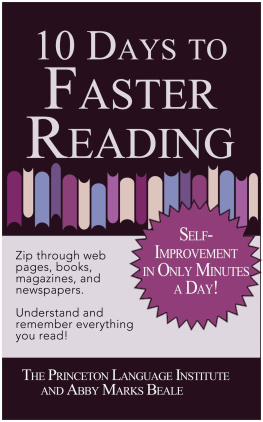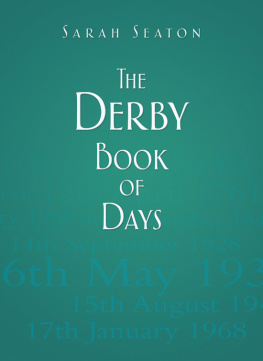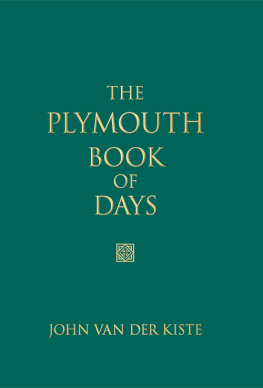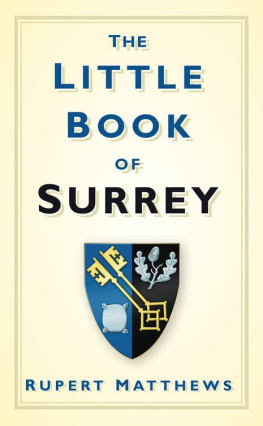THE
READING
BOOK
OF
DAYS
THE HISTORY OF
READING SOCIETY

The Reading Book of Days is a collaborative effort by members and associates of the History of Reading Society, with John Dearing as Editor and Penelope Starr and Philip Vaughan as Assistant Editors. See February 3rd for full list of authors.
First published in 2013
The History Press
The Mill, Brimscombe Port
Stroud, Gloucestershire, GL5 2QG
www.thehistorypress.co.uk
This ebook edition first published in 2013
All rights reserved
The History of Reading Society, 2013
The right of The History of Reading Society to be identified as the Author of this work has been asserted in accordance with the Copyrights, Designs and Patents Act 1988.
This ebook is copyright material and must not be copied, reproduced, transferred, distributed, leased, licensed or publicly performed or used in any way except as specifically permitted in writing by the publishers, as allowed under the terms and conditions under which it was purchased or as strictly permitted by applicable copyright law. Any unauthorised distribution or use of this text may be a direct infringement of the authors and publishers rights, and those responsible may be liable in law accordingly.
EPUB ISBN 978 0 7509 5173 9
Original typesetting by The History Press
C ONTENTS
JANUARY 1ST
1822: On this day, William Ford Poulton was born, son of Cornelius and grandson of Charles Poulton, architect of the 1786 Reading Town Hall. William became one of the most important Nonconformist architects; with his partner William Henry Woodman, he designed over seventy churches and chapels, including his masterpiece, Westminster Chapel in London. Poulton also designed the drinking fountain at St Laurences, 1 London Street, Reading, and Wokingham Town Hall. In 1850 he married Georgina Bagnall, whose sister married William Woodman, making the partners also brothers-in-law. Poulton left Reading in 1883 and settled in Great Malvern. His daughter Lily founded Malvern Girls College; his son, Sir Edward Poulton, was an eminent zoologist.
SG (Gold, S., Dictionary of Architects at Reading, 1999)

1889: On this day, Eric Harold Neville, a geometrical mathematician (heavily fictionalised in the 2007 novel The Indian Clerk) was born in London. After graduating at Trinity College, Cambridge, where he became a Fellow, he was appointed to the chair of Mathematics at University College, Reading. Over the next few years, his work was largely responsible for Reading receiving its university charter in 1926, with power to award degrees. Of his many published papers, most were short pieces addressing concise, succinctly solved problems. Retiring from the university in 1954, he died at Reading in August 1961.
VC (The Mathematical Gazette, May 1964)
JANUARY 2ND
1904: On this day, the Reading Standard printed a letter from Joseph Mosdell addressed to William McIlroy, which he shared with the readers; he eulogised McIlroys new shop premises and called them Readings Crystal Palace in an accompanying poem. Plans were first submitted in August 1899, but after the usual disapprovals and amendments they were redrawn and resubmitted. The new structure occupied the same site as an earlier McIlroys building but boasted an enormous 464ft frontage with shops on the ground floor, boardroom on the first floor and warehouse in the basement. The second and third floors, with their vast array of glass, housed the offices and 150 bedrooms for the staff, who were provided with a dining-room, sitting-rooms and music-room. The front was faced in light-red majolica glazed bricks. The overall architects were the firm of Joseph Morris & Son, but its unusual style hints more at son, Francis, than his father. The building is still in use today as separate shops with apartments above, though some of the decorative brickwork has been reduced. It has much in common with the former Pearl Buildings (1902) in Station Road, designed by the same firm.
SG (Reading Standard)
JANUARY 3RD
1891: On this day, Ellen Hopkins, aged fifteen, died while skating on the River Kennet, close to Huntley & Palmers biscuit factory. The weather had been particularly cold and the river was frozen. Ellen, whose father George was blacksmith at the forge in Merchants Place, joined four friends for some Saturday afternoon fun. The five youngsters, aged eight to fifteen, unaware that hot water pipes from the factory made that area unsafe, were enjoying their skating then the ice gave way. Ellen and two of the boys fell in; the other two, attempting to help, also toppled into the freezing waters. Passers-by extended ladders over the ice and the four boys scrambled out. Benjamin Hamblin, a worker at the factory, came out and tried to save Ellen but she could not grasp the pole he held out and she disappeared into the river. Within fifteen minutes her body was retrieved from the water but she was dead. At the inquest, held on 5 January at the St Giles Coffee House, Mr Hopkins congratulated the survivors parents. He felt that no blame should attach to anyone but thought that there should have been signs to warn of the dangers there.
JP (Berkshire Chronicle)
JANUARY 4TH
871: On this day, Reading lamented a bloody encounter between invading Danes and the peasant-soldiers of Wessex, led by King Ethelred and his brother Alfred (later famed as Alfred the Great, the only English king called Great). By 870 Wessex stood alone against the Great Heathen Army of the Danes (sometimes termed Vikings). At years end the Danes made a fortified camp in Reading (located probably at the top of todays Castle Hill). The Anglo-Saxon Chronicle account of these events is the first written reference to Reading town. The threat to Wessex was now severe. The Battle of Englefield saw the Danes defeated, but in January, when the Wessex army attacked the Danes at Reading, their losses were heavy. Wessex regrouped to fight further battles, in which neither side was decisively victorious. In April 871 Alfred became King of Wessex. He entered peace negotiations, and the Danes withdrew from their Reading camp. But Alfreds Danish troubles continued, despite campaigns and truces right across England. To oppose the invaders, he even created a navy, before he died in 899. Happily, it seems that Reading escaped more bloodshed at Danish hands for the next hundred years.
PV (Anglo-Saxon Chronicle)
JANUARY 5TH
1136: On this day, King Henry I was buried with great pomp before the High Altar of Reading Abbey, the huge, rich foundation he had established fifteen years before. Stephen, the new king, and all his archbishops, bishops and nobles, attended the funeral. After William the Conqueror won Englands throne in 1066, his family kept its French possessions and connections. Thus Henry (Williams fourth son) was in his Duchy of Normandy when he became fatally ill reputedly after over-indulging in lampreys. Thanks to the intervention of Hugh, Archbishop of Rouen, a former Reading abbot, Henrys embalmed body was returned for interment at the Abbey. The tomb was embellished with Henrys life-size effigy; but like most of the Abbeys glories, this monument is long gone. After Henry VIII dissolved the monasteries, Reading Abbey was plundered of its roof-timbers, lead, tiles and stone. Believing that the remains of the founder, Henry I, lay in a silver coffin, the sixteenth-century demolition gang rifled the tomb, scattering its contents; a later historian lamented that the Kings bones could not enjoy repose in his grave, but were thrown out to make room for a stable for horses.
Next page
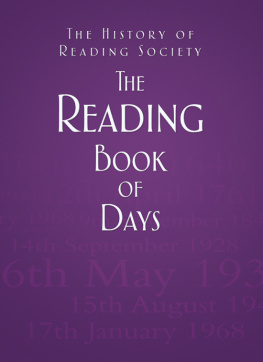

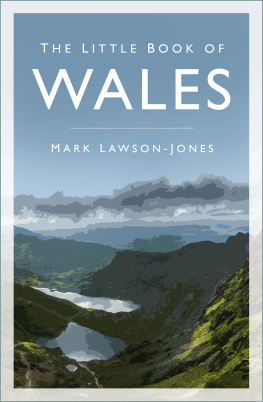
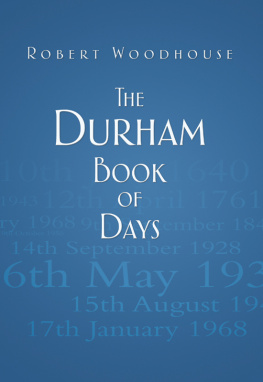
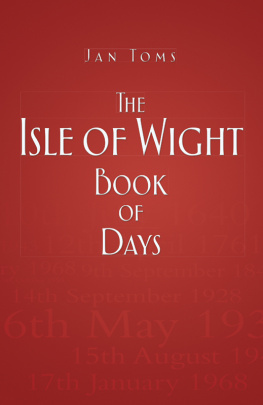
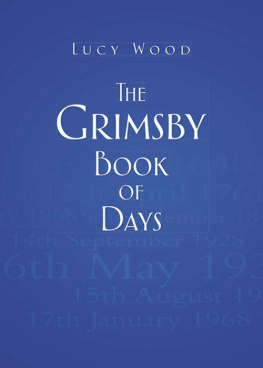
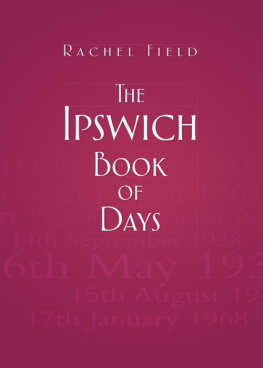
![Florin Curta (editor) - Great Events in Religion [3 volumes]: An Encyclopedia of Pivotal Events in Religious History](/uploads/posts/book/295713/thumbs/florin-curta-editor-great-events-in-religion-3.jpg)
